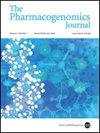晚年抑郁症患者抗抑郁反应的多基因评分分析,IRL-GRey 研究的结果。
IF 2.9
3区 医学
Q2 GENETICS & HEREDITY
引用次数: 0
摘要
晚年抑郁症(LLD)通常伴有精神障碍和心血管疾病等并发症,给抗抑郁治疗带来了挑战。最近的研究强调了治疗耐受性抑郁症(TRD)与成人注意缺陷多动障碍(ADHD)的多基因风险评分(PRS)之间的重要关联,以及抗抑郁剂症状改善与精神分裂症和双相情感障碍之间的负相关。在此,我们试图通过 LLD 的症状缓解来验证这些发现。我们分析了晚期抑郁症的不完全反应:Getting to Remission (IRL-GRey) 样本,该样本由 60 岁以上患有重度抑郁症的成年人组成(N = 342),他们接受了为期 12 周的文拉法辛治疗。我们利用精神疾病基因组学联盟和 GWAS Catalog 的汇总统计数据,构建了多动症、抑郁症、精神分裂症、双相情感障碍、神经质、一般智力、抗抑郁症状缓解和抗抑郁症状改善百分比的 PRSs。我们使用逻辑回归检验了PRSs与文拉法辛症状缓解和症状改善百分比之间的关系,并对基因组主成分、年龄、性别和基线抑郁症状严重程度进行了共同变量分析。我们发现,症状缓解与多动症和(OR = 1.36 [1.07, 1.73],p = 0.011)双相情感障碍 PRS(OR = 0.75 [0.58, 0.97],p = 0.031)PRS,以及症状改善百分比与一般智力 PRS(β = 6.81 (SE = 3.122),p = 0.03)之间存在名义上的(即 p 值小于 0.05)关联。然而,多动症的相关性与预期的方向相反,而且这两种相关性都没有通过多重测试校正。总之,这些研究结果表明,以前关于多动症PRS和抗抑郁药反应(用各种结果测量)的研究结果在老年人中并不适用。本文章由计算机程序翻译,如有差异,请以英文原文为准。

Polygenic score analyses on antidepressant response in late-life depression, results from the IRL-GRey study
Late-life depression (LLD) is often accompanied by medical comorbidities such as psychiatric disorders and cardiovascular diseases, posing challenges to antidepressant treatment. Recent studies highlighted significant associations between treatment-resistant depression (TRD) and polygenic risk score (PRS) for attention deficit hyperactivity disorder (ADHD) in adults as well as a negative association between antidepressant symptom improvement with both schizophrenia and bipolar. Here, we sought to validate these findings with symptom remission in LLD. We analyzed the Incomplete Response in Late Life Depression: Getting to Remission (IRL-GRey) sample consisting of adults aged 60+ with major depression (N = 342) treated with venlafaxine for 12 weeks. We constructed PRSs for ADHD, depression, schizophrenia, bipolar disorder, neuroticism, general intelligence, antidepressant symptom remission and antidepressant percentage symptom improvement using summary statistics from the Psychiatric Genomics Consortium and the GWAS Catalog. Logistic regression was used to test the association of PRSs with venlafaxine symptom remission and percentage symptom improvement, co-varying for the genomic principal components, age, sex and depressive symptoms severity at baseline. We found a nominal (i.e., p value ≤ 0.05) association between symptom remission and both PRS for ADHD and (OR = 1.36 [1.07, 1.73], p = 0.011) and PRS for bipolar disorder (OR = 0.75 [0.58, 0.97], p = 0.031), as well as between percentage symptom improvement and PRS for general intelligence (beta = 6.81 (SE = 3.122), p = 0.03). However, the ADHD association was in the opposite direction as expected, and both associations did not survive multiple testing corrections. Altogether, these findings suggest that previous findings regarding ADHD PRS and antidepressant response (measured with various outcomes) do not replicate in older adults.
求助全文
通过发布文献求助,成功后即可免费获取论文全文。
去求助
来源期刊

Pharmacogenomics Journal
医学-药学
CiteScore
7.20
自引率
0.00%
发文量
35
审稿时长
6-12 weeks
期刊介绍:
The Pharmacogenomics Journal is a print and electronic journal, which is dedicated to the rapid publication of original research on pharmacogenomics and its clinical applications.
Key areas of coverage include:
Personalized medicine
Effects of genetic variability on drug toxicity and efficacy
Identification and functional characterization of polymorphisms relevant to drug action
Pharmacodynamic and pharmacokinetic variations and drug efficacy
Integration of new developments in the genome project and proteomics into clinical medicine, pharmacology, and therapeutics
Clinical applications of genomic science
Identification of novel genomic targets for drug development
Potential benefits of pharmacogenomics.
 求助内容:
求助内容: 应助结果提醒方式:
应助结果提醒方式:


